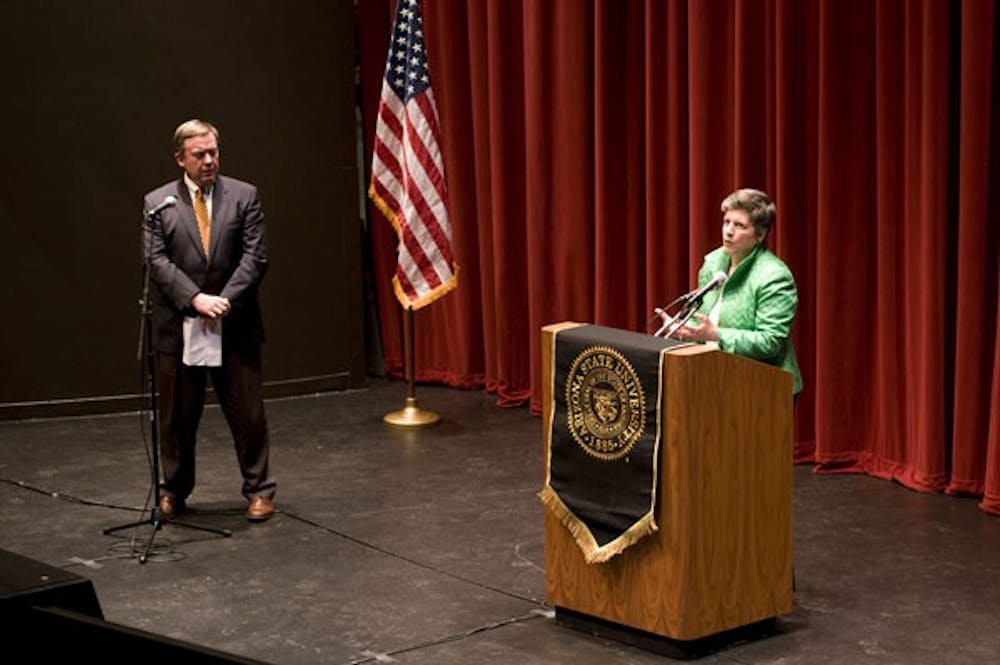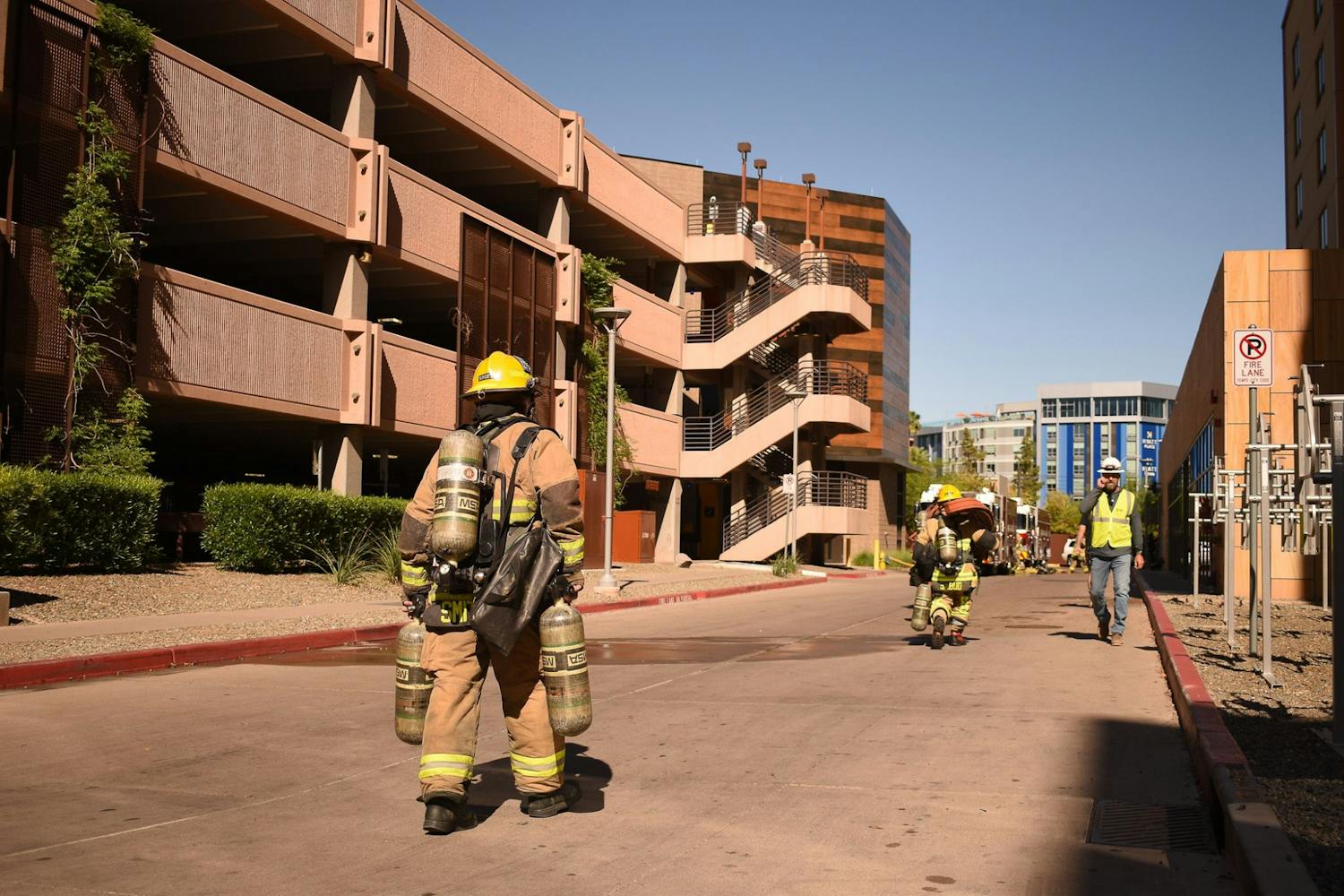Former Arizona Gov. Janet Napolitano, secretary of the U.S. Department of Homeland Security, delivered a speech on the Tempe campus Thursday night about the present threat of terrorism and how the department is adapting its techniques to thwart future attacks.
The event, held at the Evelyn Smith Music Theatre, was the 11th annual John P. Frank Memorial Lecture, a series meant to honor the late Frank, an attorney best known for defending Ernesto Miranda.
The 1966 U.S. Supreme Court case Miranda v. Arizona resulted in the establishment of the Miranda rights, which police officers recite to inform arrestees of their Fifth Amendment right to protect themselves against self-incrimination.
About 480 students, faculty members and local residents listened to Napolitano speak on issues like immigration, aviation security and balancing civil liberties with protecting America’s citizens.
Napolitano spoke amid both silent and vocal protests for immigration reform.
Student members of the Arizona DREAM Act coalition, an alliance of state organizations in support of the Development Relief and Education for Alien Minors Act, listened to Napolitano while wearing graduation gowns and caps.
The DREAM Act is a measure that was introduced in both houses of Congress last year to give undocumented students brought to the U.S. before the age of 16 resident status. The legislation has not been passed.
During the question-and-answer period of the event, about 20 members of the group stood up in silence, wearing decorated caps with letters that spelled “DREAM ACT.”
“We want her to support the DREAM Act,” mechanical engineering junior Angelica Hernandez said.
Hernandez said the coalition was not at the event in protest, but to have a presence.
“There are so many students [at ASU] facing the issue,” she said of illegal immigrant students attending the University. “We’re here standing up for them.”
Napolitano said the department has stepped up enforcement efforts of current immigration law.
The department saw a 19-percent increase from the previous year in the number of illegal immigrants removed from the country, an increase of about 22,000, she said.
“We are working with the Congress to design and draft a comprehensive immigration law that meets our country’s security, law enforcement [and] labor needs in the 21st century,” Napolitano said.
A more vocal protest took place outside the theater during and after Napolitano’s speech.
Raising signs, beating drums and shaking tambourines, about 30 people, including some ASU students, stood before a message scribbled on the pavement: “Janet Stop Coalition with [Sheriff Joe] Arpaio.”
Chants of “no justice, no peace, no racist police” broke the nighttime silence as event attendees filed out of the auditorium.
Anthropology senior Justin Helepololei said the protesters were naming Napolitano as one of the people responsible for not stopping Arpaio’s questionable immigration enforcement tactics.
Helepololei, who participated in the protest, stressed the importance of a better relationship between local and federal enforcement.
Speaking on aviation security, Napolitano said the Christmas Day terrorist attempt revealed a need to improve airline security, as terrorists will find new ways to strike commercial flights.
The Dec. 25 terrorist attempt was made by a 23-year-old Nigerian man who boarded a Northwest Airlines flight in Detroit with explosive materials.
“It’s not only about reaction, it’s about closing gaps that we know exist,” she said. “And it’s also about using Christmas Day as a catalyst to lift aviation security standards throughout the globe.”
Hours following the attempted attack, the secretary said department officials recognized four security issues that needed improvement related to international collaboration: information collection, information sharing, deployment of new technologies and the unification of aviation security standards.
Advanced Imaging Technology machines, one of the new security technologies appearing at more airports around the world, has been the subject of recent debate related to the violation of citizen privacy. Napolitano denied rumors that the scanning machines are an invasion of bodily privacy.
“I can confirm — no — the AIT machines do not see everything,” she said.
The AIT machines shed light on a larger issue the department is currently facing: the balance between privacy and security.
“The rights and liberties of Americans are things that we must consider always, even as we develop new ways to meet evolving threats,” Napolitano said.
The secretary said Americans toss aside the idea that liberty and security are two opposing values.
“The plain fact of the matter is — you cannot live freely if you live in fear,” she said.
Reach the reporter at kjdaly@asu.edu





